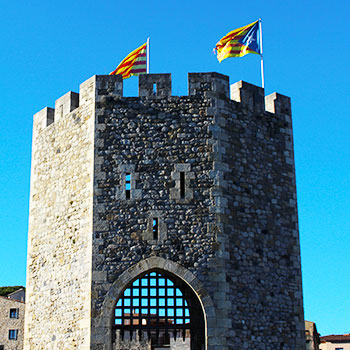The Culture of Food & Wine in Spain
International Business Program
Barcelona, Spain
Dates: 9/1/21 - 12/18/21

The Culture of Food & Wine in Spain
OVERVIEW
CEA CAPA Partner Institution: CEA CAPA Barcelona Center
Location: Barcelona, Spain
Primary Subject Area: Cultural Studies
Other Subject Area: Sociology
Instruction in: English
Course Code: CUL340BCN
Transcript Source: TBD
Course Details: Level 300
Recommended Semester Credits: 3
Contact Hours: 45
Prerequisites: None
Additional Fee: $25.00
Additional Fee Description:This course requires payment of an additional fee to cover active learning components that are above and beyond typical course costs.
DESCRIPTION
There is currently an enormous appetite and enthusiasm for gastronomy. Spain has never seen such an important re-evolution in the kitchen, nor has so much thought gone into or such observation been made of gastronomy. However, trends aside, concern about what we eat, the selection of products by origin and their quality is nothing new. Over two thousand years ago, designation of origin existed and product quality was an essential requirement. What's more and perhaps more importantly, complex value codes and beliefs were created around these products and their consumption.
The course is divided into four parts. The first deals with the actual title of the course. What is food? What is culture? How does cuisine form part of and develop our collective and individual identity? How are our cultural food habits created and changed? With all this in mind we will work on the first field study with the aim of defining some of the customs and habits of the Spanish regarding their relationship with food. Following this we will consider a broader context that includes and sustains the way of producing, preparing and consuming food in Spain: the Mediterranean diet. The changes seen in this lifestyle could help us to understand the evolution of food habits in Spain over the last few years. In the second part of the course, after outlining the theoretical and ideological aspects of cuisine in Spain, we will define the particular characteristics through a research project on the common and distinct elements of traditional Spanish cuisine.
The third part of the course considers historical events that have molded the cultural food model in Spain. We will look at the influence of the Romans, Arabs and the Columbian Exchange as the initial basis of the modern Spanish diet. In the second field study we will link the cultural and religious influences to the importance of certain products in Spain. In the fourth and final part of the course we will focus on some of the foods that comprise the core foods of the Spanish diet (oil, pork products and wine). To conclude, students engage in a reflection on the present and future of food and our relationship with it.
The course is divided into four parts. The first deals with the actual title of the course. What is food? What is culture? How does cuisine form part of and develop our collective and individual identity? How are our cultural food habits created and changed? With all this in mind we will work on the first field study with the aim of defining some of the customs and habits of the Spanish regarding their relationship with food. Following this we will consider a broader context that includes and sustains the way of producing, preparing and consuming food in Spain: the Mediterranean diet. The changes seen in this lifestyle could help us to understand the evolution of food habits in Spain over the last few years. In the second part of the course, after outlining the theoretical and ideological aspects of cuisine in Spain, we will define the particular characteristics through a research project on the common and distinct elements of traditional Spanish cuisine.
The third part of the course considers historical events that have molded the cultural food model in Spain. We will look at the influence of the Romans, Arabs and the Columbian Exchange as the initial basis of the modern Spanish diet. In the second field study we will link the cultural and religious influences to the importance of certain products in Spain. In the fourth and final part of the course we will focus on some of the foods that comprise the core foods of the Spanish diet (oil, pork products and wine). To conclude, students engage in a reflection on the present and future of food and our relationship with it.










